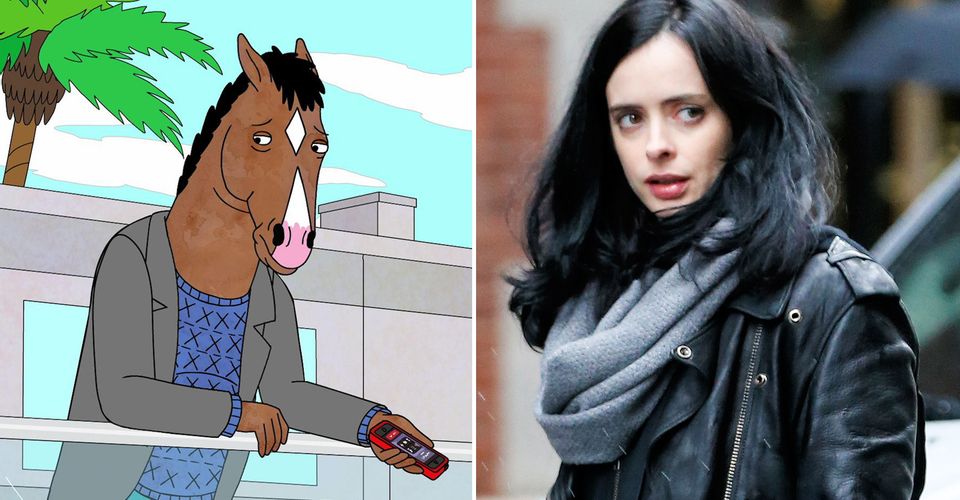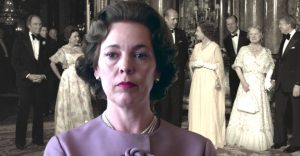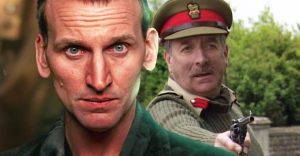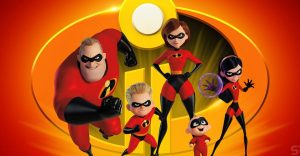15 TV Characters Who Accurately Portray Mental Illness

Mental health is a serious subject that requires a great deal of sensitivity and raw honesty when it comes to representation in popular media. Many television shows and movies have been criticized for their portrayal of mental health, with characters being reduced to two-dimensional clichés that promote damaging stereotypes.
Modern media has risen to the challenge when it comes to depicting an accurate representation of mental health. Shows such as BoJack Horseman have gained critical acclaim for their explorations of mental illness, as well as becoming iconic staples of popular culture. These characters have had their struggles, and their storylines are treated with the respect they deserve. Here are ten TV characters who accurately portray mental illness.
Updated on December 14th, 2020 by Svetlana Sterlin: mental illness is a topic that slowly but surely is becoming less taboo, especially in media. Television is a particularly effective medium in which to explore mental illness because of its longer, serialized format. Viewers can get to know characters more intimately, and the complexities of their mental conditions are allowed more time to evolve. Here are five additional TV characters who accurately portray mental illness.
15 Jackson Marchetti (Sex Education)

Male characters dealing with mental illness are less common than females, though this does not reflect reality. Jackson Marchetti is a good example of a male character breaking the stigma, with some help from his loved ones, and accepting his mental illness. Jackson is a prolific swimmer in his school, has always dated “popular” girls, and is recently-elected Head Boy.
He seems to have everything going for him, yet he suffers from crippling anxiety to the point where it leads him to self-harm. He goes through a journey in which he evaluates his relationship with swimming – and his moms – eventually accepting help from his friends and allowing himself to open up.
14 Beth Harmon (The Queen’s Gambit)

Beth is orphaned at a young age, left largely to her own devices as she grows up. She also develops an addiction to a tranquilizer pill in her childhood, something that impacts her greatly.
Beth’s mental illness isn’t labeled explicitly, but she has an unhealthy obsession with winning, but she does everything in her power to sabotage herself: she drinks, smokes, takes other substances, and drowns herself in sorrow. She isolates herself and often rejects the help of other people. A reporter even labels her as a genius and implies that she is “mad”.
13 Beth Cassidy (Dare Me)

Beth Cassidy is a lesser-known character, but a powerful one nevertheless. She’s used to having power, but when her best friend starts to spend more time with their new cheer coach, Beth feels their friendship – and her hold over the team – slipping away.
She starts to spend time with people who are bad for her, even abusive. She withdraws into herself, ignoring texts and botching commitments. Nobody around Beth seems to notice or understand what’s going on with her because she can’t bring herself to be honest about her experiences. This is all too common when it comes to mental illness, as is Beth’s isolation.
12 Hannah Horvath (Girls)

Lena Dunham plays the main character of HBO’s Girls. Hannah Horvath struggles with Obsessive-Compulsive Disorder (OCD), a well-known but not well-represented mental illness. Hannah also struggles to financially support herself.
She mostly experiences the symptoms of OCD at particularly stressful times in her life, which viewers have praised as an accurate depiction of OCD, which is often made fun of or used as meme fodder.
11 Sydney Novak (I Am Not Okay With This)

Sydney is an angsty teen trying to process her father’s recent suicide, her romantic feelings towards her best friend, and her newfound supernatural abilities. It turns out that these abilities are metaphorical representations of her mental health.
Sydney suffers from anxiety and depression and seems to have inherited her powers from her father, who suffered from PTSD. Her outbursts of telekinesis are physical manifestations of how she feels when she’s anxious, angry, frustrated, embarrassed, or sad. They’re also an accessible way for those who can’t empathize with these feelings to understand how it feels.
10 BoJack Horseman (BoJack Horseman)

BoJack Horseman explores the titular character’s struggles with addiction, depression, and the aftereffects of childhood neglect. The popular Netflix show blends BoJack’s hard-hitting and emotional story with surreal humor, producing some of the most insightful explorations of mental health in an animated show.
BoJack’s character is not two-dimensional. His mental health issues and struggle with addiction is depicted in an honest and thought-provoking way. BoJack creator Raphael Bob-Waksberg stated that he wanted to portray BoJack’s depression “truthfully” and explore “the lots of explanations for why BoJack is the way he is.”
9 Alyssa (The End Of The F****ing World)

In the second season of The End Of The F***ing World, Alyssa copes with the aftermath of the first season. Her arc is an intense introspective into mental health, as Alyssa deals with depression and recovering from trauma.
Alyssa’s arc in season two is handled honestly and respectfully and depicts the feeling of separation from reality. Actress Jessica Barden said in an interview that Alyssa is “dealing with depression and doesn’t understand it.”
8 Diane (BoJack Horseman)

There is an impression throughout BoJack Horseman that Diane and BoJack are the two characters who truly understand each other, and a large part of that can be contributed to their shared struggles with their mental health. Diane’s depression is directly addressed in the first half of season six, with her new boyfriend Guy urging her to take anti-depressants.
Diane’s struggle is honest and raw. Her decision to take medication for her mental health mirrors BoJack’s journey in rehab and during the closing scenes of the season, we see a rejuvenated Diane reunite with Guy at the airport conceding defeat about Dawson’s Creek.
7 Rae (My Mad Fat Diary)

My Mad Fat Diary is a British comedy-drama that first aired in 2016 on E4 and focuses on teenager Rae’s readjustment after leaving a psychiatric hospital. Rae is a lovable and heart-warming character and her struggles with self-esteem and mental health are handled in a sensitive but touching manner.
Set in the mid-1990s, the show follows Rae as she reconnects with her best friends. The show was praised by critics for its portrayal of mental health and gentle humor, with Rae’s voice-over giving a “funny insight into her experience fighting her darker times.”
6 Jessica Jones (Jessica Jones)

Jessica Jones is an insightful exploration of post-traumatic stress disorder and Jessica herself is a relatable heroine. Her season one arc in which she faces Kilgrave is a chilling analysis of abuse and trauma, but Jessica is as emotionally strong as she is physically and her final confrontation with him is a satisfying end to a despicable villain.
Jessica Jones has been praised for putting “women at the forefront” and the third and final season features her inevitable confrontation with Trish, who descends into sympathetic villainy.
5 Rick (Rick and Morty)

Like BoJack Horseman, Rick and Morty use the exaggerated template of an animated comedy to explore real-life issues. A large part of the show is its focus on existentialism, but this directly relates to Rick Sanchez’s depression as he fails to find meaning in a world of infinite realities.
The infamous “Pickle Rick” episode is an interesting exploration of Rick’s psyche, with the scientist turning himself into a pickle to avoid confronting his feelings. Rick eventually joins his family for therapy and receives a balanced and truthful analysis of his behavior.
4 Princess Carolyn (BoJack Horseman)

Princess Carolyn’s character arc throughout BoJack Horseman offers an insight into high-functioning depression, with her character a juxtaposition of BoJack’s. Princess Carolyn throws herself into her work as a distraction, repeating a cycle when her crazed life as an agent creates its own chaos.
In season six, Princess Carolyn’s none-stop nature is kicked into overdrive when she balances her career with motherhood. The visual representations of her constantly-working other-selves reflect the character’s exhaustion.
3 James (The End Of The F ***ing World)

During the beginning of The End Of The F***ing World, James believes he is a psychopath and dates Alyssa with the idea of killing her. However, his actor Alex Lawther has said that, though he believed his character to be a psychopath, he was really “very, very sad.”
James represses the trauma of his mother’s suicide and feels numb and alienated from the world. His relationship with Alyssa forces him to feel again, and both characters grow and learn from each other.
2 Elliot (Mr. Robot)

Throughout Mr. Robot, Elliot copes with disassociative identity disorder, depression, and anxiety, with the show portraying his struggles in a real and grounded manner. Creator Sam Esmail consulted a psychologist before production to develop Elliot’s character, as well as drawing on personal experience.
Elliot uses drugs and alcohol to cope and withdraws from the world. Esmail states that Elliot is “suppressing the pain,” and dissociates from the reality around him.
1 Randall (This Is Us)

Randall’s character in This Is Us highlights mental health issues with a focus on the stigma and struggles of men with mental illness. Randall experiences anxiety throughout the show and was originally reluctant to see a therapist.
Research from the National Institute Of Mental Health states that men are statistically less likely to seek treatment for mental health than women, something which may have influenced Randall’s decision. Fans can hope that Randall receives the help he needs soon.
About The Author

















